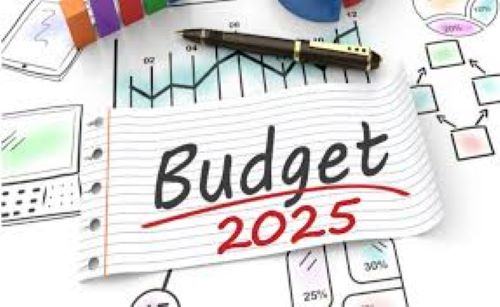The Sokoto state governor, Ahmed Aliyu on Friday, presented the 2025 Appropriation Bill (budget) of ₦526,882,142,484.39 to the State House of Assembly.
Tagged “Transformation and Infrastructural Sustainability Budget,” the budget, which has 66% allocated to capital projects and 44% to recurrent expenditure is broken down as are as follows:
- Recurrent Expenditure: ₦176.3 billion
- Capital Expenditure: ₦349.3 billion
- Education Sector Allocation: 25% (highest)
- Health Sector Allocation: Second-highest
The governor gave a rundown of achievements and review of the 2024 Budget as follows:
Security challenges
The security challenges being experienced in some Local Government Areas in the state remain a major concern, despite the tremendous achievements recorded in many areas. My administration remains focused on pursuing synergy and effective collaboration with all security outfits, traditional rulers, religious leaders, and other key stakeholders in the state to address these challenges.
Efforts to tackle banditry are yielding positive results. Our commitment to securing the state against all forms of criminality has led to the procurement and distribution of over 130 patrol vehicles to security agencies to enhance their operations. Additionally, the establishment of the Community Guard Corps, equipped with necessary operational tools and logistics, complements the efforts of conventional security agencies. We have also supported the Nigerian Air Force with the logistics required for the operationalization of its unit in Sokoto.
Promoting Islamic affairs
In line with the second point of my nine-point innovative smart agenda, we have constructed and renovated many mosques in the state, providing them with boreholes, carpets, and solar systems for the comfort of worshippers. We introduced monthly cash allocations to Juma’at mosques amounting to ₦90,000,000 per month and provided food and cash assistance to Imams, Deputy Imams, Muazzins, grassroots preachers, and Islamic scholars across the state.
The Hisbah Board has been reintroduced, equipped, and operationalized to address moral decadence and social vices in our society.
Infrastructure development
During the year under review, we constructed and asphalted over 30 township roads, all commissioned by eminent personalities. An additional 40 roads are at various stages of completion.
In housing, we are constructing 1,000 houses in Gidan Salanke and Wajake and have purchased 137 housing units built by the federal government in Kwannawa.
Regarding gratuity, we inherited an accumulated liability of over ₦15 billion from the immediate past administration. I am pleased to report that we now release ₦500 million monthly to settle the backlog and ₦300 million monthly for retirees under my administration to ensure no retiree remains unpaid.
Urban renewal
Our urban renewal program has transformed Sokoto City, with solar-powered streetlights installed in the city and across the 23 Local Government Areas.
Social welfare and palliatives
In response to the hardships caused by the removal of the oil subsidy, we purchased 110 mass transit buses and taxi cabs for intra- and intercity services, as well as 46 buses for inter-local government mass transit. Additionally, we acquired 1,000 motorcycles and 500 tricycles at subsidized rates.
We distributed 280 trucks of rice (168,000 bags) at a cost of ₦14.4 billion, sold at subsidized rates across the 244 wards in the state.
The monthly allowances for persons with disabilities have been restored and increased from ₦6,500 to ₦10,000.
Energy and agriculture
Contracts have been awarded for the completion of the inherited Independent Power Plant (IPP) project. This project, when completed, will help revive collapsed industries. Additionally, eight Local Government Areas in the eastern zone, which have been without electricity for a decade, are being reconnected, with the project 80% complete.
In agriculture, we distributed fertilizers, herbicides, pesticides, tiller machines, seedlings, and other farm inputs free of charge to support food production. Major irrigation sites such as Lugu Dam in Wurno and the Kware irrigation scheme are being rehabilitated.
Education and health
In education, we have constructed and renovated schools, provided instructional materials and furniture, and paid examination fees for state indigenes. Outstanding bills for local and international students in tertiary institutions have also been settled.
In health, we have sustained education and immunization efforts, provided treatment and disease control measures, and ensured free medical care for pregnant women and children.


